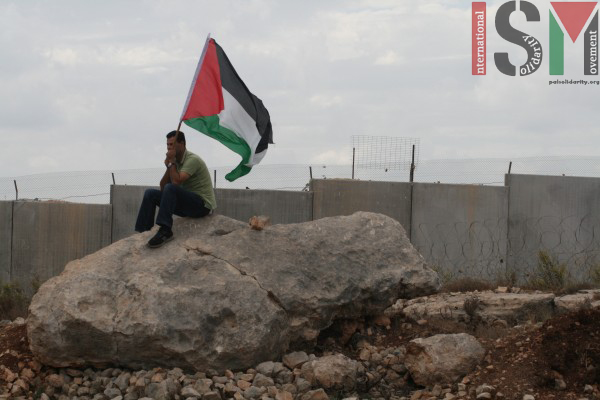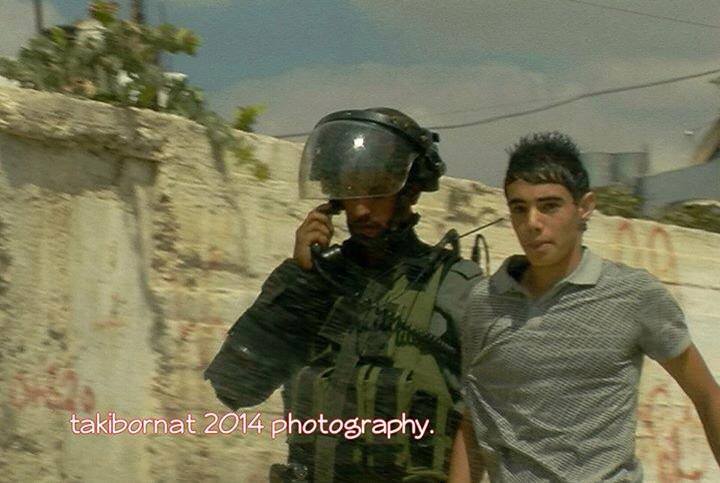Tag: Bil’in
-
Human Rights Defender Abdallah Abu Rahma receives guilty verdict from military court
21st October 2014 | International Solidarity Movement | Bil’in, Occupied Palestine On October 21st, Human Rights Defender Abdallah Abu Rahma was found guilty by an Israeli military court of “disturbing a soldier”. “Demonstrating against the occupation cannot be a criminal offence. Finding Abdallah guilty only shows that the [Israeli] military force is a tool to perpetuate the…
-
Action alert: Arrested on the way to school in Bil’in
23rd September 2013 | International Solidarity Movement | Bil’in, Occupied Palestine On September 14th at 11:00 in the morning, 15 year-old Ibrahim Abu-Rahma was walking to school with his little brother, 13-year-old Ahmed, in their village of Bil’in. An Israeli army jeep had infiltrated the village and stopped near the boys. The two ran in the opposite direction, only…
-
Tear gas, rubber-coated steel bullets, and arrests
19th September 2013 | International Solidarity Movement | Occupied Palestine Every week, several villages across the West Bank demonstrate against the Israeli occupation of Palestine. This week, ISM activists attended protests in the villages of Bil’in, Ni’lin, and Nabi Saleh. During the demonstration in Bil’in, Israeli soldiers shot mass amounts of tear gas at peaceful protesters. Many Palestinians…



